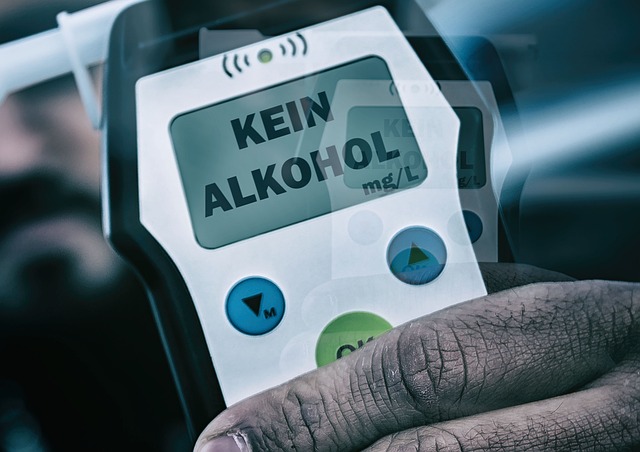DUI convictions severely impact global immigration status due to public safety concerns. Jurisdictions may lead to deportation or visa denials, viewing DUI as reckless behavior. Individuals with a history of DUI should seek legal advice to navigate complexities and mitigate adverse effects on their immigration standing. Expunction offers a fresh start by removing criminal records, enhancing residency or citizenship opportunities. Understanding global perspectives on Global Immigration and DUI is crucial for favorable outcomes in diverse jurisdictions. Reform advocating for humanization and rehabilitation is needed to strengthen communities worldwide.
In the complex landscape of global immigration, understanding the profound implications of Driving Under the Influence (DUI) is paramount. This article delves into the intricate interplay between DUI convictions and immigration status, exploring critical aspects such as visa denial due to alcohol-related offenses and the potential for expungement. We navigate international travel post-DUI arrest and advocate for global immigration reform, providing essential insights from diverse perspectives.
- DUI Convictions: Impact on Immigration Status
- Visa Denial Due to Alcohol-Related Offenses
- Understanding Expunction and Its Benefits
- Navigating Immigration Consequences After a DUI
- International Travel Post-DUI Arrest
- Supporting Global Immigration Reform for DUI Cases
DUI Convictions: Impact on Immigration Status

DUI convictions can significantly impact an individual’s immigration status, especially in the context of global immigration and DUI perspectives. When a person is convicted of driving under the influence, it raises serious concerns for immigration authorities as it involves public safety issues. These convictions may lead to various consequences, such as deportation or denial of visa applications, depending on the jurisdiction and the specific circumstances.
In many countries, having a DUI on one’s record can make an immigrant vulnerable to removal or cancellation of legal residency. Immigration laws often view repeat offenders with severe penalties, including loss of citizenship or entry bans. This is because DUI incidents are seen as indicative of reckless behavior that might pose a risk to society. As such, individuals facing immigration issues with a DUI history should seek legal advice to navigate the complexities and potentially mitigate the adverse effects on their global immigration standing.
Visa Denial Due to Alcohol-Related Offenses

For individuals from around the globe, navigating the intricate landscape of immigration laws can be challenging, especially when it comes to alcohol-related offenses. In the context of Global Immigration and DUI Perspectives, visa denial due to these offenses has become a significant concern. When an individual is involved in a driving under the influence (DUI) incident, the consequences can extend far beyond local criminal charges.
Immigration authorities worldwide take alcohol-related offenses seriously as they are often seen as potential indicators of character and fitness for residency or visa eligibility. A DUI conviction can lead to visa denial, refusal of entry into certain countries, or even deportation for those already residing there. This is because many countries maintain strict rules regarding the conduct of their residents and visitors, ensuring public safety and upholding moral standards. As a result, individuals with alcohol-related offenses may face significant obstacles in their immigration journey, requiring careful consideration and legal guidance to mitigate potential consequences.
Understanding Expunction and Its Benefits

Expunction is a legal process that can significantly mitigate the immigration consequences of a DUI charge, offering a fresh start for individuals navigating global immigration and DUI perspectives. It involves the official removal or sealing of criminal records, effectively clearing a person’s history as if the offense never occurred. This is particularly beneficial for non-citizen residents facing deportation due to a DUI conviction.
By expunging a DUI charge, individuals can prevent it from appearing on background checks and potentially blocking future visa applications. It enhances their chances of obtaining legal residency or citizenship without the shadow of a past mistake hindering their progress. This process provides a pathway to rehabilitation and reintegration into society, allowing those affected by DUIs to leave their legal troubles behind them.
Navigating Immigration Consequences After a DUI

Navigating Immigration Consequences After a DUI can be a complex and daunting task for individuals facing both criminal charges and immigration issues. The global perspective on Immigration and DUI varies widely, with each country having its own set of rules and regulations regarding driving under the influence. In many jurisdictions, a DUI conviction can have severe implications for immigrants, potentially leading to deportation or denial of visa applications.
For those with visas, a DUI arrest may trigger an automatic review of their case, with immigration authorities closely examining the circumstances surrounding the incident. This could result in temporary restrictions, such as travel bans or conditions on staying in the country. The process can be labyrinthine, requiring legal assistance to interpret the laws and advocate for the best possible outcome.
International Travel Post-DUI Arrest

After a DUI arrest, individuals often face significant challenges when considering international travel, especially with the ever-changing global immigration policies. Each country has its own set of rules and regulations regarding driving under the influence, and these can severely impact an individual’s ability to obtain visas or even enter certain countries. The consequences are not just limited to domestic travel restrictions; they extend globally, creating a complex web for those with international plans.
When traveling abroad post-DUI arrest, it’s crucial to understand the global immigration and DUI perspectives. Some countries may deny entry or issue strict bans on individuals convicted of driving while intoxicated. Others might require additional documentation, such as proof of rehabilitation or specialized driver’s education courses, to grant permission for re-entry. These varying standards highlight the need for thorough research and legal consultation before planning any international trips after a DUI incident.
Supporting Global Immigration Reform for DUI Cases

In light of the above, it’s crucial to advocate for global immigration reform that considers the unique challenges faced by individuals with DUI (Driving Under the Influence) convictions. Many countries have strict immigration policies that often lead to harsh consequences for those with a DUI history, even if the incident occurred in another jurisdiction. This creates a challenging landscape for folks navigating the complexities of international travel and residency.
In terms of global Immigration and DUI perspectives, reform should aim to humanize these cases by recognizing the potential for mistake and rehabilitation. Instead of perpetuating a cycle of punishment, supportive immigration policies could offer alternatives that foster reintegration and personal growth, ultimately strengthening communities worldwide.
In conclusion, the implications of a DUI conviction extend far beyond the immediate legal consequences. For immigrants, these can severely impact their visa status and future international travel. Understanding expungement and its benefits is crucial for navigating these challenges. As we’ve explored the various aspects of immigration consequences due to DUI, it’s evident that global immigration reform is needed to address these complexities from a broader perspective. By recognizing the multifaceted nature of DUI cases, we can foster more compassionate and effective policies that support individuals facing immigration issues related to alcohol-related offenses.






